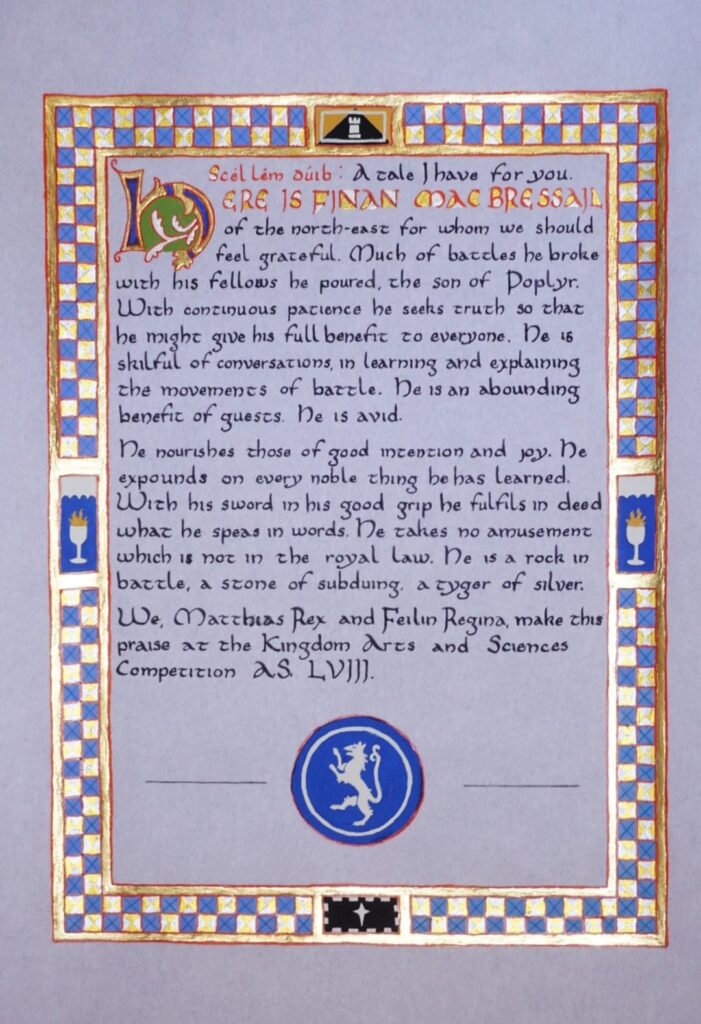Finan mac Bressail, Silver Tyger
A tale I have for you!
Here is Finan mac Bressail of the north-east for whom we should feel grateful.
Read more: Silver Tiger for FinanMuch of battles he broke, with his fellows he poured, the son of Poplyr. With continuous patience he seeks truth, so that he might give his full benefit to every one. He is skilful of conversations, in learning and explaining the movements of battle. He is an abounding benefit of guests. He is avid.
He nourishes those of good intention and joy. He expounds on every noble thing he has learned. With his sword in his good grip he fulfills in deeds what he speaks in words. He takes no amusement which is not in the royal law. He is a rock in battle, a stone of subduing, a tyger of silver.
We, Matthias Rex and Feilinn Regina, make this praise at the Kingdom Arts and Sciences Competition A.S. LVIII.

Words by Læri-Sǫngr Aneleda Falconbridge based on the 6th c. eulogy of Choluim Chille, Calligraphy & Illumination by Vrouwe Lijsbet van Catwiic
Text based on the eulogy of Choluim Chille, believed to be the oldest text in Irish, having been written shortly after his death in 597. It appears in “The Amra Choluim Chilli of Dallan Forgaill” by Dallan Forgaill, Saint, 6th cent. (However, the text is believed to have been written in the 9th century.) As translated by John O’Beirne Crowe in 1871.

